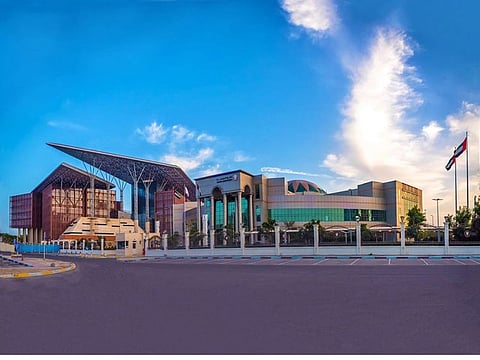1,000 civil marriages registered at Abu Dhabi Expat Family Court
Over 20% applicants tourists as region’s first secular court handles divorce, inheritance

Abu Dhabi: Abu Dhabi Judicial Department (ADJD) has registered more than 1,000 civil marriage applications with the Expat Family Court in less than five months since the Abu Dhabi Civil Marriage Law 12-2021 came into force in January this year.
The court has also received 50 no-fault divorce applications, 20 civil inheritance cases and 250 applications for civil will attestation.
Youssef Saeed Al Abri, Undersecretary of ADJD, said that reaching 1,000 civil marriage registrations in less than five months is a major step forward in providing people who live and invest in the UAE with the freedom to apply liberal rules when it comes to their family affairs.
He added that 20 per cent of marriage applicants were tourists who specifically flew in to Abu Dhabi to benefit from the exclusive civil marriage service, which is only available in the UAE capital, and that more than 120 nationalities applied for the civil marriage service.
Court, a premier family hub
Al Abri said that the success of the new English language-compliant Expat Family Court reflects the pioneering status of Abu Dhabi as a world-class jurisdiction, in line with the vision of Sheikh Mansour bin Zayed Al Nahyan, Deputy Prime Minister, Minister of Presidential Affairs and Chairman of ADJD, to provide expats with access to one of the most modern and advanced family courts in the world.
Abu Dhabi Family Courts for expats has become the premier family hub in the Middle East as it is the only judicial authority in the region to apply civil and secular rules to regulate family affairs and it stands out not only in terms of the modern applicable laws, but also as it offer digital and bilingual court procedures, with all court documents and procedures fully available in English, to ensure the right of foreigners to understand court procedures and thereby removing any language barrier between the expat and the court, the ADJD undersecretary said.
No-fault divorce judgement
Statistics made available by the court show that 50 cases of no-fault civil divorce applications have been filed by foreigners and non-Muslims residing in Abu Dhabi since the law first came into force in January this year.
The no-fault divorce judgement was issued in one court session within 30 days from filing the case, without the need to submit the case to the Family Guidance section, and it included — by default — decision on the joint custody of the children.
The law has made legal separation a peaceful process, without turning couples into opponents, by reducing conflicts between couples seeking separation and helping them to focus on how to jointly raise their children and to move on in life.
No unnecessary finger-pointing
Couples who are foreign nationals can now get divorced in Abu Dhabi without one person needing to blame the other as the law removes unnecessary finger-pointing and saves children from witnessing their parents litigate. The court automatically grants joint custody of the children to both the parents, based on the best interests of the children.
Court statistics also show that 20 cases of civil inheritance for foreigners have been registered since January, thanks to the simple and easy mechanism introduced by the new law, which provides for the distribution of the estate of foreigners residing in the emirate of Abu Dhabi, by granting the wife 50 per cent of her deceased husband’s assets, and dividing the remaining 50 per cent among the children in equal shares, regardless of gender.
It only takes 30 days for the court to issue its decision on the distribution of the estate and the whole procedure is available in English and Arabic.
Sign up for the Daily Briefing
Get the latest news and updates straight to your inbox



